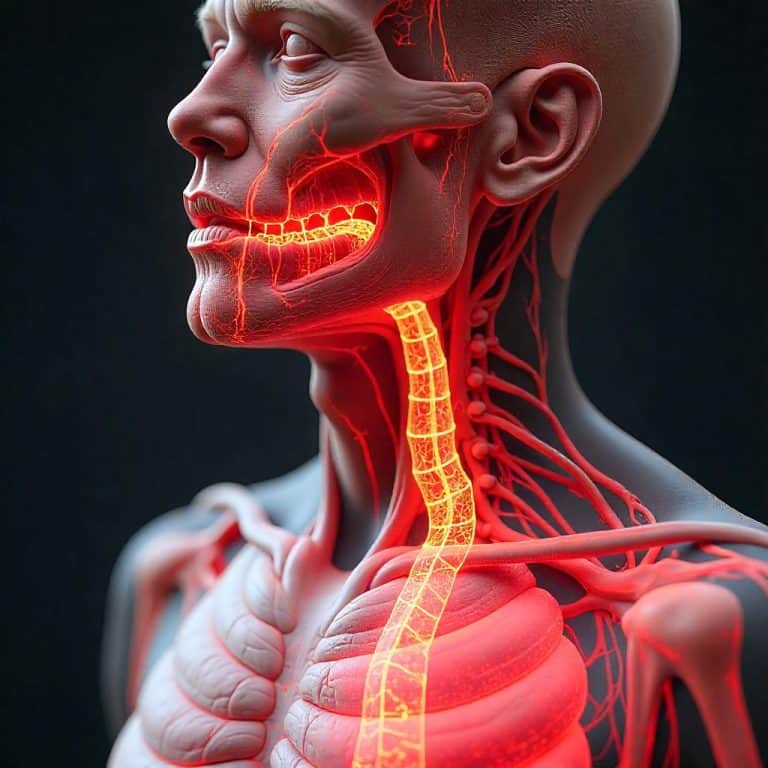Welcome to the Esophagus quiz! The esophagus is a vital part of your digestive system, responsible for carrying food and liquids from your mouth to your stomach.
This tube-shaped organ is about 10 inches long, and is lined with muscles that help push the food down to where it needs to go.
In this quiz, you’ll learn all about the esophagus and its important role in digestion. From how it works to common problems that can occur, you’ll become an expert on this essential part of your body.
So get ready to test your knowledge and see how much you know about the amazing esophagus!
Play Esophagus Quiz
Instructions
- This quiz is multiple choice.
- Read each question carefully before selecting an answer.
- Choose the best answer for each question.
- You will see the missed questions with correct answers at the end of the quiz.
Quick Facts
- The esophagus is a long, muscular tube that connects the throat to the stomach.
- Food and liquid travel down the esophagus when you swallow.
- Peristalsis is the wave-like muscle contractions that push food through the esophagus.
- The esophagus is about 10 inches long in adults.
- When you eat or drink, the esophagus contracts to help move the food downward.
- Heartburn can occur when stomach acid flows back up into the esophagus.
- The esophagus is lined with mucous membrane to protect it from damage.
- If the esophagus becomes narrowed or blocked, it can cause difficulty swallowing.
- Smoking and heavy alcohol use can increase the risk of esophageal cancer.
- Regular screenings and a healthy diet can help maintain the health of your esophagus.
Downloads
Study Tips
- Create a study schedule and stick to it.
- Find a quiet and comfortable study environment.
- Remove distractions such as phones and social media.
- Take breaks every 25-30 minutes to avoid burnout.
- Use active studying techniques like summarizing, highlighting, and teaching concepts to someone else.
- Practice retrieval by testing yourself with flashcards or practice quizzes.
- Stay organized with notes, study guides, and resources.
- Stay hydrated and eat brain-boosting foods like fruits, nuts, and whole grains.
- Get enough sleep to improve memory retention and cognitive function.
- Reward yourself for reaching study goals to stay motivated.
